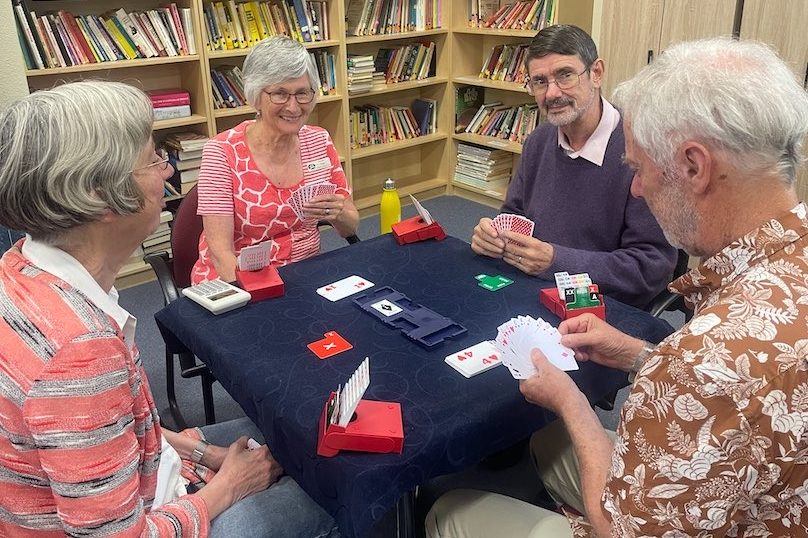
MAHATMA Gandhi’s prowess as a bridge player is said to have played a role in his strategy of non-violent civil disobedience.
Winston Churchill relied on bridge tactics and strategies to make crucial battlefield decisions during the heat of World War II. Bill Gates thinks it helped grow his intellect early, and Warren Buffett quipped that he wouldn’t mind getting imprisoned but only if he had the company of three cellmates who were decent bridge players.
Yes, we’re talking about one of the world’s most famous intellectual games, which along with its cousin, chess, has entered the language in expressions, such as “performing new tricks”, looking for someone’s “strong suit,” or “coming up trumps”.
But is it art?
This was a challenge thrown down to me by members of Canberra’s oldest and biggest (but by no means its only) bridge organisation, Canberra Bridge Club.
This is not a question with a categorical answer, but with its mixture of mindful observation and creative hunches, it certainly sounds like an artform, and star bridge champion Omar Sharif founded the Omar Sharif Bridge Circus, so it’s at least showbiz.
Long considered to be a unique blend of art and strategy, the artistic aspect manifests in the intuitive decisions players make during a game – sensing the room, reading opponents, and making unexpected plays, while the strategic side is grounded in logic and probability.
During World War II, bridge became recognised as a tool to develop critical thinking skills and also became a symbol of international diplomacy
With this in mind and as a complete layperson, I head to the venerable society’s headquarters in Deakin as members are finishing a three-hour plus playing session, one of around a dozen such weekly sessions.
Benefiting from technology, the day’s results are posted on a large screen and the cards allocated uniformly around the room, so that everybody plays the same number of games. In the old days, all that would’ve been done by the “director” and the club has more than a dozen of them — today’s is Ian Robinson.
I join a pair of couples – Jennifer and Brett with Morag and Chris, long-time members, who today have been playing three boards against nine other couples.
But you don’t have to be married to play with someone and indeed, not playing with one’s partner has been the preservation of many a marriage.
“Oh, my goodness, you play bridge together and you’re still married,” is a standard quip, they tell me.
Morag, who looks after the program for new players and those returning after a break, says: “I come for the company, but I enjoy assisting newcomers on their bridge journey… we have a focus on youth bridge.”
To Morag it’s the human element that attracts her and it pleases her that so far, unlike chess, computers can’t beat the best bridge players, although she is quick to add that it can be played virtually, a blessing during the pandemic. Bridge also allows her to travel around the country.
Husband Chris claims he doesn’t talk much, but he observes.
While I’m watching, Jenny deals, but Brett wins the contract.
I am introduced to the basic principles of contract bridge, to how the cards interact with the other hands, so that a player with a lot of “high” cards (diamonds and clubs are called “minor” suits and worth less than the “major” spades and hearts) is likely to win more “tricks”.
I am cautioned not to confuse bridge with poker, (think of the “poker face” or keeping a card up your sleeve).
I am told that no secret signals are allowed, but that even so, it’s a psychological game.
Brett says you can laugh, you can say hello, but you mustn’t cheat and part of the secret is trying to work out why your partner left that card.
At times, he confirms, you may feel as if you’re letting the side down.
Excitement is mounting around the ACT, about the coming Summer Festival of Bridge, which convenor Ian Thomson says has been held in Canberra for 50 years, with the National Open Teams event the high point of Australian bridge’s calendar, likely to attract about 400 from outside the ACT.
The club numbers some of the country’s leading bridge players, such as Robinson himself, but there’ll certainly be scope for novices.
I can see the cards, because I’m walking around the table, but they can’t. Here’s where the intuition comes in through the careful observation of which cards the contractor is proposing, inspiring both calculated and intuitive guesses as to what fellow players have in their hands.
So, in the end, is it art or not? Well, it certainly seems to have that mixture of creativity and intelligence that goes into all the art practices, and it’s a lot of fun.
The Summer Festival of Bridge, the Canberra Rex, January 9-21.
Who can be trusted?
In a world of spin and confusion, there’s never been a more important time to support independent journalism in Canberra.
If you trust our work online and want to enforce the power of independent voices, I invite you to make a small contribution.
Every dollar of support is invested back into our journalism to help keep citynews.com.au strong and free.
Thank you,
Ian Meikle, editor



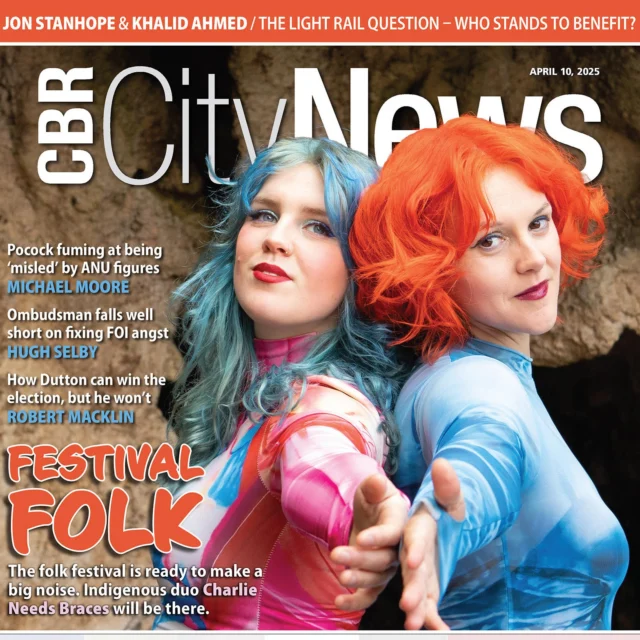
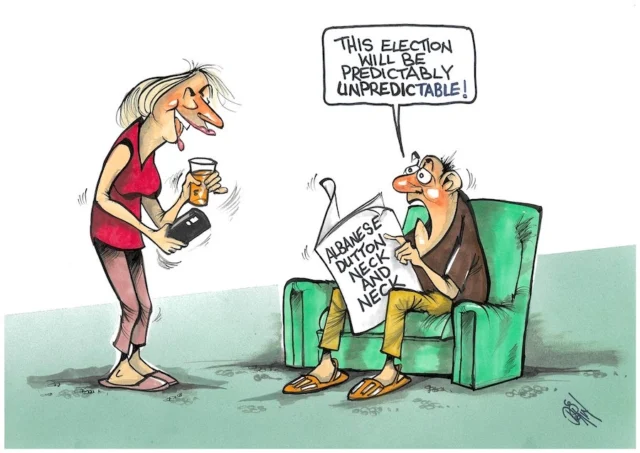
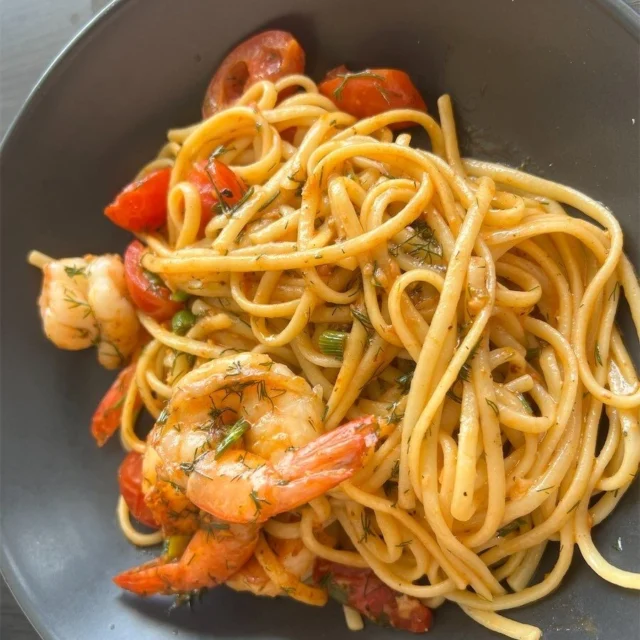
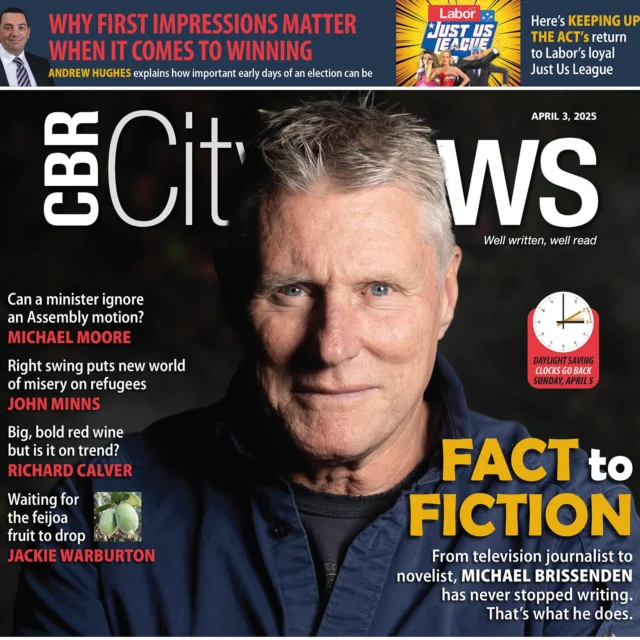

Leave a Reply